Three Principal Aspects of the Path (2002-07)
Teachings on Lama Tsongkhapa’s Three Principal Aspects of the Path" given at various locations around the United States from 2002-2007.

Ultimate and conventional existence
The ultimate nature of emptiness within the three aspects of the path, discussion of ultimate versus conventional existence.
View Post
The middle way view
Examining emptiness and the misconception of the self existent, permanent self; the relationship of the aggregates and the self, and the truly existent self.
View Post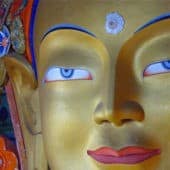
The advantages of bodhicitta
Why should we pursue the Buddhist ideal of being of benefit to all living beings? This talk explains the benefits that come with striving for…
View Post
The benefits and causes of bodhicitta
How bodhicitta, our true friend and refuge, makes our lives more meaningful.
View Post
Equanimity: The foundation of bodhicitta
Before we can cultivate love and compassion, we have to be able to get rid of the habitual reactions that block these positive emotions.
View Post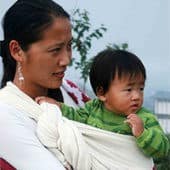
All beings have been our mother
When we can relate to all beings as having once been our mother, our attitude towards others changes and becomes positive and accepting.
View Post
Seeing the kindness of our mothers
We can develop gratitude by meditating on the kindness of our parents.
View Post
The benefits of love
Developing love in our minds brings benefits, as outlined in Nagarjuna's book The Precious Garland, the Eight Benefits of Love.
View Post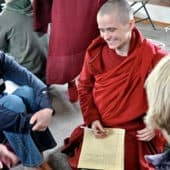
Heart-warming love
It is possible to see all beings, whether they are friends, enemies, or strangers, as being worthy of unconditional love.
View Post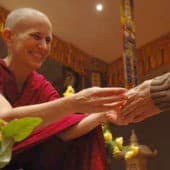
Great compassion
Just as love is the thought that we want all beings to have happiness, so great compassion is the thought that we want all beings…
View Post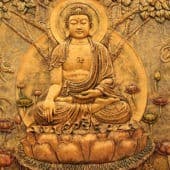
The great resolve and bodhicitta
The decision we make in our Dharma practice to benefit all sentient beings is a necessary step in our development of bodhicitta.
View Post
Equalizing self and others
The second method of generating bodhicitta, called equalizing and exchanging self and others, is discussed.
View Post